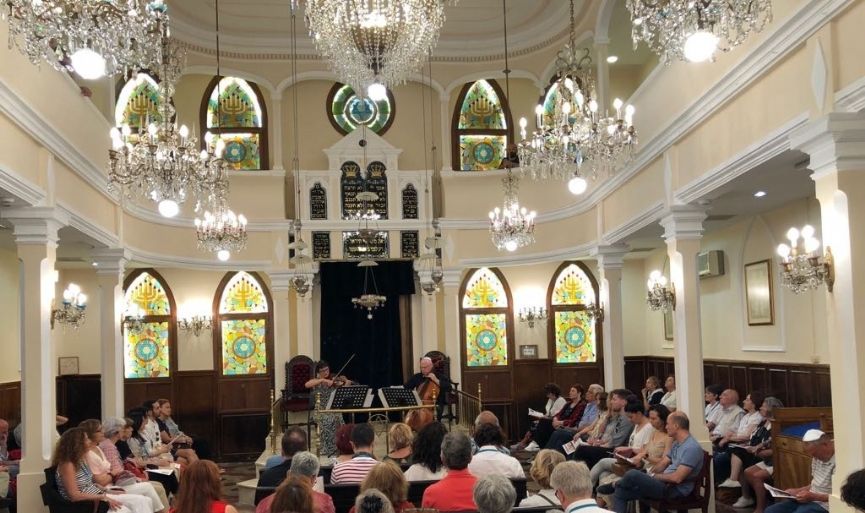
MUSIC ROUTE: A feast of music that started with classical music and ended with traditional ethnic music
On June 10th, 2018, as part of the 46th Annual Istanbul Music Festival organized by IKSV (Istanbul Culture and Art Foundation), we had the chance to witness interesting concerts performed at four different religious venues that belong to minority communities in Galata district and its surrounding neighborhoods, neighborhoods where mainly minorities resided at the beginning of 20th century. Salom writer and professional guide Mois Gabay who was our guide throughout the concert route, gave information about the venues we visited and made the day even more meaningful.
By Alain Danon
Since some of the venues were rather small, we visited the venues in two groups of 125 people. The concerts at these venues, where you could literally smell history, attracted so much attention that all tickets were sold out on the same day they were put on sale.
The first stop of the concert series was historical Italian Synagogue ‘Kal de Los Francos’. Turkish violinist Sevil Ulucan and Israeli violinist Hillel Zori together performed the musical works of Bach and Bartok at the concert.
The next stop was St. Georges Church inside St. Georges Austrian High School Campus. Koehne Quartet performed the musical works of Mozart and Dvorak with bowed string instruments.
After a 50 minute break, we attended Aima Festival Orchestra’s concert where they performed music from Stabat Mater Opera composed by Pergolesi at St. Pierre Church. In my opinion, the mystic atmosphere inside the venue made it the most impressive venue within the route.
After this concert, the final stop of the route was Ashkenazi Synagogue. An interesting street concert was waiting for us at the stairs right across the synagogue. We had the chance to listen to Yiddish music performed by violinist Bora Gürel and accordion player Yuri Ryadchenko. Klezmer music, a music that is one of the most essential parts of Ashkenazi holidays, ceremonies and weddings, performed by a violinist and an accordion player carried us from classical music to traditional ethnic music. At the finale, the upbeat tunes performed by Polish Bester Quartet at the Ashkenazi Synagogue cheered everyone up.
The music route that started at noon time and ended around 6pm was one of the most extraordinary experiences I have lived during this year’s Festival.
Related Newsss ss












